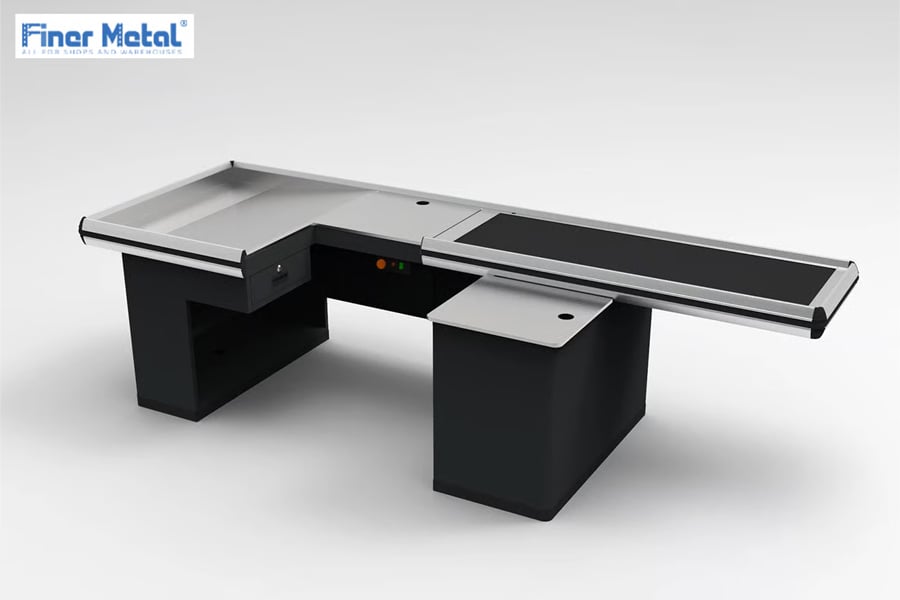Understanding Mobile Checkout Counters and Their Role in Modern Retail
A mobile checkout counter is a portable point-of-sale (POS) solution designed to facilitate seamless payment processing outside of traditional fixed retail environments. These counters allow retailers to process sales transactions anywhere within a store, at events, or on-site locations, transforming the customer checkout experience. With increasing consumer expectations for convenience, mobile checkout counters have emerged as crucial tools in improving transaction speed and operational flexibility.
Key Features That Define Mobile Checkout Counters
Modern mobile checkout counters are equipped with essential features such as compact design, integrated card readers, touchscreens, wireless connectivity, and battery-powered operation. These elements enable staff to serve customers efficiently without being tethered to a fixed register. Additionally, many models offer compatibility with inventory management systems and digital receipts, ensuring a smooth backend process and enhanced customer satisfaction.
Enhancing Customer Experience with Mobile Checkout Counters
Customer experience is significantly elevated through mobile checkout counters by reducing wait times and enabling transactions wherever the customer is in the store. This convenience fosters a more personalized service environment, allows staff to engage more meaningfully, and reduces congestion at traditional checkout lanes. The ability to offer payment anywhere also supports upselling and impulse purchases, contributing positively to overall sales.
Cost-Effectiveness and ROI Benefits
Investing in mobile checkout counters can lead to considerable cost savings by minimizing the need for multiple fixed checkout points and reducing floor space dedicated to cash wraps. These counters are versatile and can be deployed as needed, maximizing their utilization. The increased transaction speed and customer throughput translate into higher sales volumes and improved return on investment (ROI) for retail businesses.
Integration with Existing Retail Technologies
Mobile checkout counters are designed to integrate seamlessly with existing retail technologies such as inventory management systems, customer relationship management (CRM) platforms, and digital payment gateways. This connectivity ensures real-time data synchronization, providing retailers with valuable insights into sales trends and inventory levels while maintaining a coherent customer database across all channels.
Applications Beyond Traditional Retail Environments
Mobile checkout counters extend their utility beyond brick-and-mortar stores to markets, trade shows, pop-up stores, hospitality, and mobile vendor operations. Their portability and ease of setup make them ideal for businesses that need to process payments temporarily or in multiple locations. This adaptability expands business opportunities and aligns with the growing trend of omnichannel retailing.
Security and Compliance in Mobile Checkout Systems
Security is a paramount concern when deploying mobile checkout counters. These systems are built with encrypted payment processing and comply with Payment Card Industry Data Security Standards (PCI DSS) to safeguard customer data. Additionally, mobile checkout counters often support secure login features and regular firmware updates to protect against emerging threats, ensuring trust and compliance in financial transactions.
Impact on Staff Productivity and Training
The adoption of mobile checkout counters impacts staff productivity positively by enabling employees to manage sales from any point on the sales floor. This mobility reduces bottlenecks and allows for better distribution of workload. Furthermore, the intuitive user interfaces of modern mobile checkout systems reduce onboarding time and simplify training, empowering staff to perform efficiently with minimal technical expertise.
Challenges and Considerations When Implementing Mobile Checkout Counters
While mobile checkout counters offer numerous advantages, retailers should consider challenges such as device maintenance, battery life management, connectivity issues, and initial investment costs. Evaluating the store layout and customer traffic patterns is essential to optimize deployment. Additionally, training staff and integrating mobile solutions effectively into existing workflows are critical for successful implementation.
The Future of Mobile Checkout Counters in Retail
Emerging technologies such as artificial intelligence (AI), augmented reality (AR), and 5G connectivity are set to revolutionize mobile checkout counters, making them smarter, faster, and more interactive. These advancements will enable predictive analytics, frictionless checkout processes, and enhanced customer engagement. As retail continues to evolve toward more flexible and personalized shopping experiences, mobile checkout counters will remain central to this transformation.
Quote Inquiry
contact us

